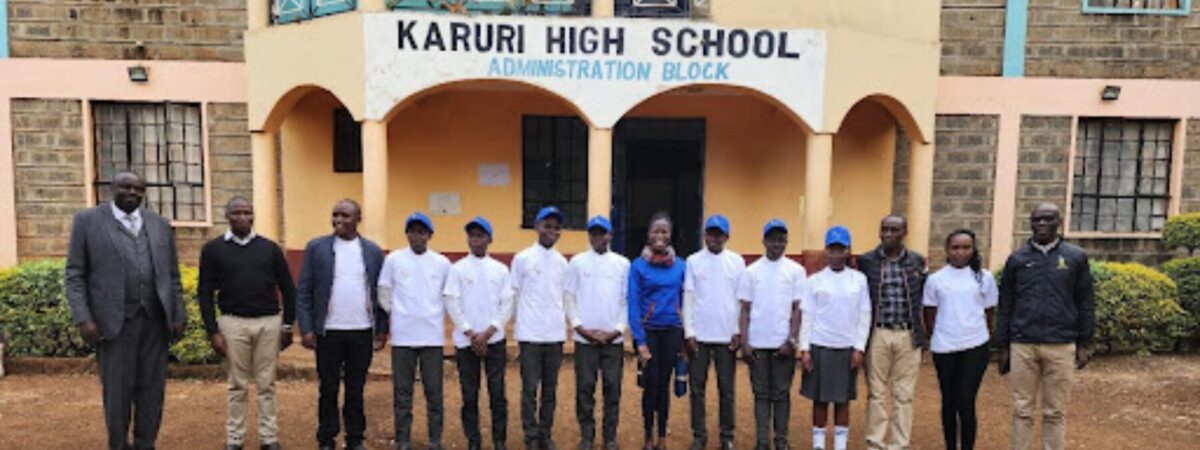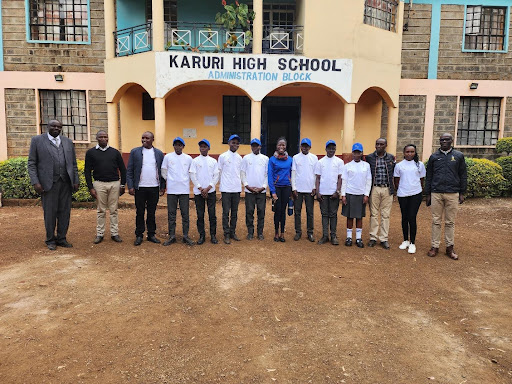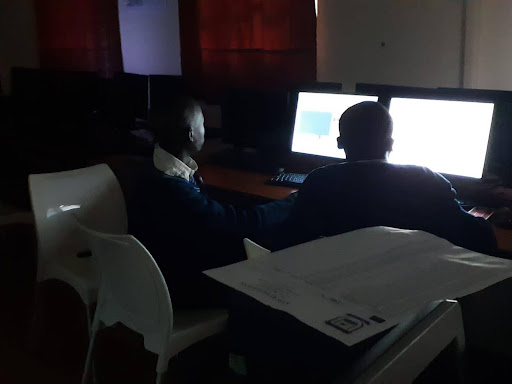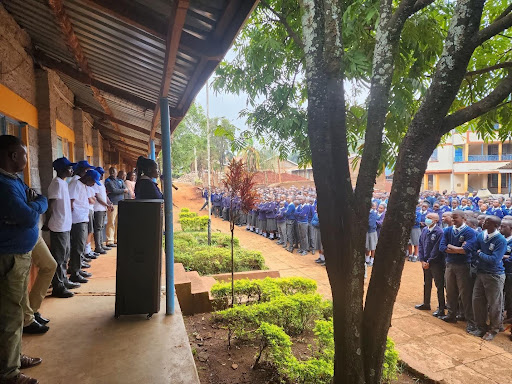
What if all young people and their teachers were supported in using technology to engage in service and project based learning with their peers worldwide? And what if they were inspired to take collaborative action in their communities to effect meaningful change? These questions guide my work at iEARN-Kenya, where I strive to create opportunities that not only educate, but also inspire and empower the next generation to make a lasting impact on the world.

Learners posing for a photo with their principal, teachers and program assistants.
Karuri High School is nestled in a region of Kenya where drug and substance abuse are rampant. Many students come from homes where one parent is either absent due to separation or has passed away because of drug abuse. The environment at home is often violent, making it unbearable for students to return after school. This situation not only affects their emotional well-being but also their academic performance, as many struggle to complete their homework in such conditions.
When we first introduced the Ciena Solutions Challenge to them, the students displayed a noticeable lack of interest. It was clear that the hardships they faced had dampened their enthusiasm for learning and innovation. Recognizing the need for support and encouragement, we initiated mentorship and career talks to help rekindle their passion for education.
We offered mentorship opportunities and career talks with professionals from the tech industry, particularly those with IT and engineering backgrounds. These professionals volunteered their time to guide our students, sharing insights from their journeys into and within the tech world…The impact of these sessions was profound. Students expressed increased motivation and clarity about their future career paths, with many noting that the mentors’ personal stories made the tech industry feel more accessible and attainable.

Learners working on the Uliza Ujue prototype
Students developed the Uliza Ujue app to help them address a problem they face in their daily lives. . Many of them were too shy to ask questions directly, fearing ridicule and mockery. The societal stigma around certain questions being deemed irrelevant or unnecessary further discouraged them from seeking knowledge. The question, “What if we had an app that could answer all our questions?” led to the conception of Uliza Ujue. (Kiswahili translation for “Ask and you shall be answered.”) Uliza Ujue was designed to counter this mindset by providing a platform where no question is turned down.
The app allows students to ask questions anonymously, ensuring they can learn without the fear of being judged. This innovative approach has empowered students to seek answers and learn confidently, fostering an environment where curiosity is celebrated.

Learners who took part in Developing the Uliza Ujue app doing a presentation to the whole school during assembly.
Listen to the caption.
Participation in the Ciena Solutions Challenge was a turning point for our learners. This competition not only motivated them to believe in their ideas but also provided a platform to showcase their innovative solutions. The Challenge encouraged them to be confident and to nurture every idea they had, no matter how small or insignificant it seemed initially.
One of the most remarkable outcomes of our efforts is the 10 percent increase in female students joining STEM (Science, Technology, Engineering, and Mathematics) careers and participating in innovation. This shift is a testament to the power of mentorship and the importance of creating inclusive spaces for learning and growth.
The 10 percent increase in female students joining STEM careers and participating in innovation is one of the most remarkable outcomes of our efforts. This growth can be attributed to our strategic focus on mentorship and the creation of inclusive learning spaces. When sourcing volunteers to mentor these young minds, we deliberately sought female professionals to serve as role models and motivators for the female learners. These mentors shared their personal stories, including their initial lack of interest or belief that tech was too complex, which resonated deeply with the students. By demonstrating how these challenges were merely mental barriers, they inspired the girls to see themselves as capable of succeeding in tech.

Learners posing for a photo with their teachers and principal.
The success of the Uliza Ujue project demonstrates potential to be a model for students in similar circumstances. It highlights the importance of providing support, encouragement, and safe spaces for learning. As we continue to work with these young minds, our goal is to expand the reach of such projects and inspire more students to overcome their challenges and pursue their dreams.
The journey has not been easy, but the progress we’ve witnessed is truly inspiring. By nurturing their potential and providing the necessary tools and support, we are helping to shape a brighter future for these students, one question at a time.
For educators supporting students in pursuing STEM in contexts where access to technology is limited, my advice is to focus on fostering creativity, resourcefulness, and a strong foundational understanding of STEM principles. Even without advanced technology, there are many ways to engage students in meaningful STEM learning.
Emphasizing innovation, collaboration, and adaptability can help students succeed in STEM even in resource-constrained settings.